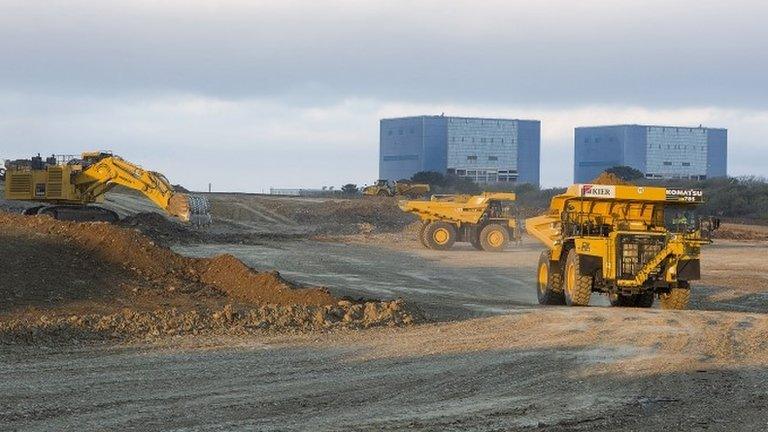Hinkley Point: UK approves nuclear plant deal
- Published
- comments
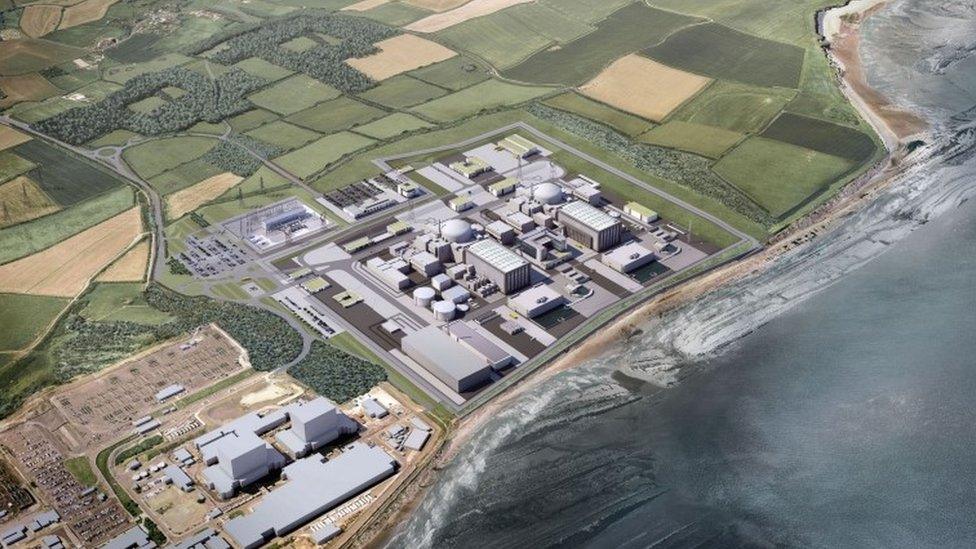
Artist's impression of Hinkley Point C building proposals
The government has approved a new £18bn nuclear power station in the UK after imposing "significant new safeguards" to protect national security.
The new plant at Hinkley Point in Somerset is being financed by the French and Chinese governments.
However, the UK government says it will have control over foreign investment, external in "critical infrastructure".
Ministers will be able to stop EDF, the state-controlled French energy firm, from selling its stake in Hinkley.
Jean-Bernard Lévy, chief executive of EDF, which is building the plant, said: "The decision of the British Government to approve the construction of Hinkley Point C marks the relaunch of nuclear in Europe."
Live reaction to Hinkley Point decision
Q&A: What is Hinkley Point and why is it important?
Hinkley approval: Reaction from Somerset
Critics of the deal have warned of escalating costs and the implications of allowing nuclear power plants to be built in the UK by foreign governments.
EDF is funding two-thirds of the project, which will create more than 25,000 jobs, with China investing the remaining £6bn.
The Chinese agreed to take a stake in Hinkley, which will meet 7% of Britain's electricity needs, and to develop a new nuclear power station at Sizewell in Suffolk on the understanding that the UK government would approve a Chinese-led and designed project at Bradwell in Essex. That decision has raised questions over national security.
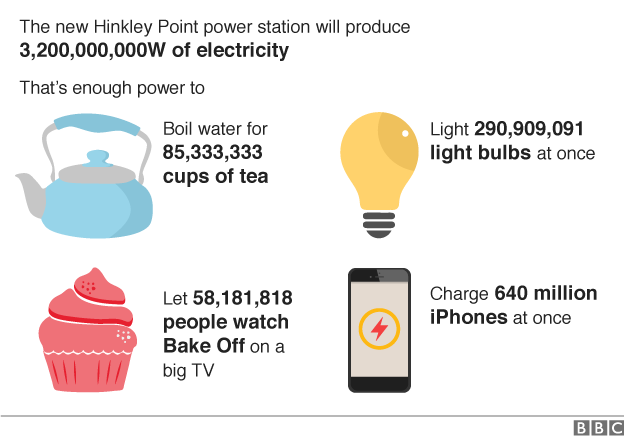
The Department for Business said: "After Hinkley, the British government will take a special share in all future nuclear new build projects. This will ensure that significant stakes cannot be sold without the government's knowledge or consent."
It added: "There will be reforms to the government's approach to the ownership and control of critical infrastructure to ensure that the full implications of foreign ownership are scrutinised for the purposes of national security."
However, Barry Gardiner, the shadow energy secretary, claimed that the government already had powers to halt the sale of any element of the UK's critical infrastructure and dismissed the new measures as "window dressing".

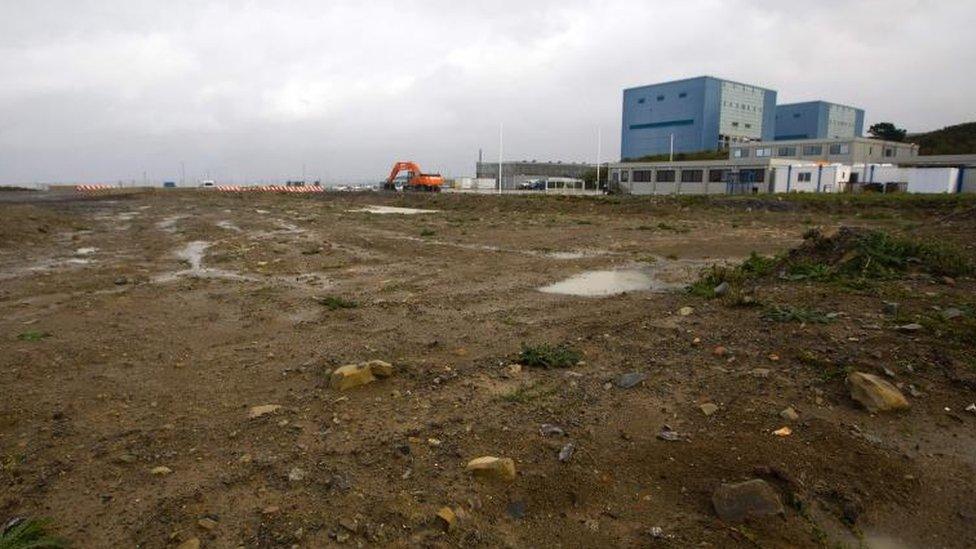
Analysis: Simon Jack, BBC business editor
It's a yes - with strings.
A new agreement means that the government will be able to block the sale of EDF's controlling stake in Hinkley. The government will also take a special or "golden share" in all future new nuclear projects. This will ensure that significant stakes cannot be sold without the government's knowledge or consent.
There will also be increased scrutiny of the national security implications of foreign ownership of critical infrastructure.
There is no specific mention of China's plans to design and build their own reactor at Bradwell, but state-owned China General Nuclear Corporation welcomed the decision. Sources close to the company say it will press ahead with their Bradwell ambitions under these new rules with confidence.
The price of the electricity, the parties involved and the future of UK nuclear all look the same. That will prompt some to ask what the hiatus since July's surprise review has really achieved.

Guarantees
Business and Energy Secretary Greg Clark told the House of Commons, that it was right for a new government to re-examine the Hinkley Point deal.
He said: "The government is satisfied that the improved deal and the other changes announced will for the first time remedy the weaknesses of the previous regime for foreign ownership of critical infrastructure."
He added that the measures will ensure foreign investment in UK infrastructure "works always in the country's best interests".

The government has not altered the guaranteed payment of £92.50 per megawatt hour for electricity generated. It will fall to £89.50 if the new nuclear power at Sizewell is built. Mr Gardiner said it was "too high a price" and it should have been renegotiated.
Claire Jakobsson, head of climate and environment policy at EEF ,the manufacturers' organisation, said it was a relief to see Hinkley going ahead "after months of delays and uncertainty".
"However, this project will clearly require a vast amount of support and it remains to be seen whether this deal is able to offer value for money. If new nuclear is to continue to play a major role we must see significant reductions in strike prices for future projects," she added.
Josh Hardie, deputy director-general of the CBI business lobby group, called the announcement good news: "Investors are hungry for further signs from the government that the UK is open for business."
The decision on investment was approved by EDF's board in July, and was agreed in principle with China during the state visit by President Xi Jinping to the UK last October.
- Published15 September 2016
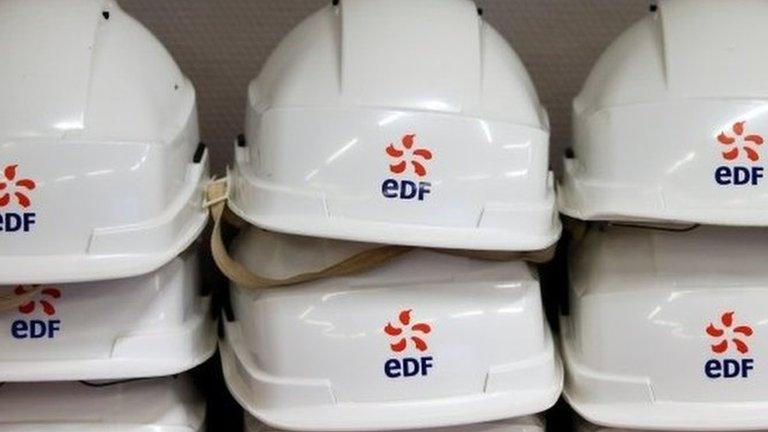
- Published15 September 2016
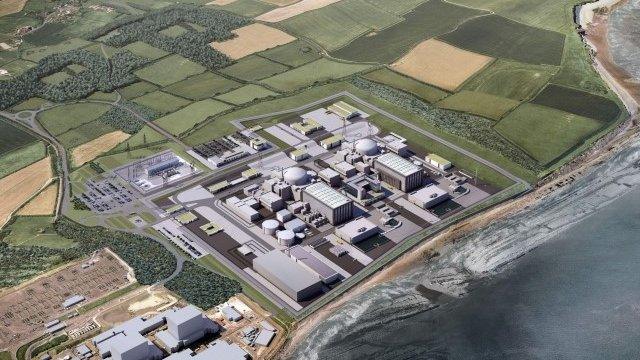
- Published29 July 2016
